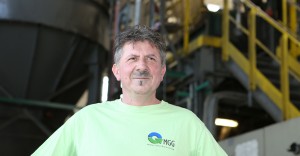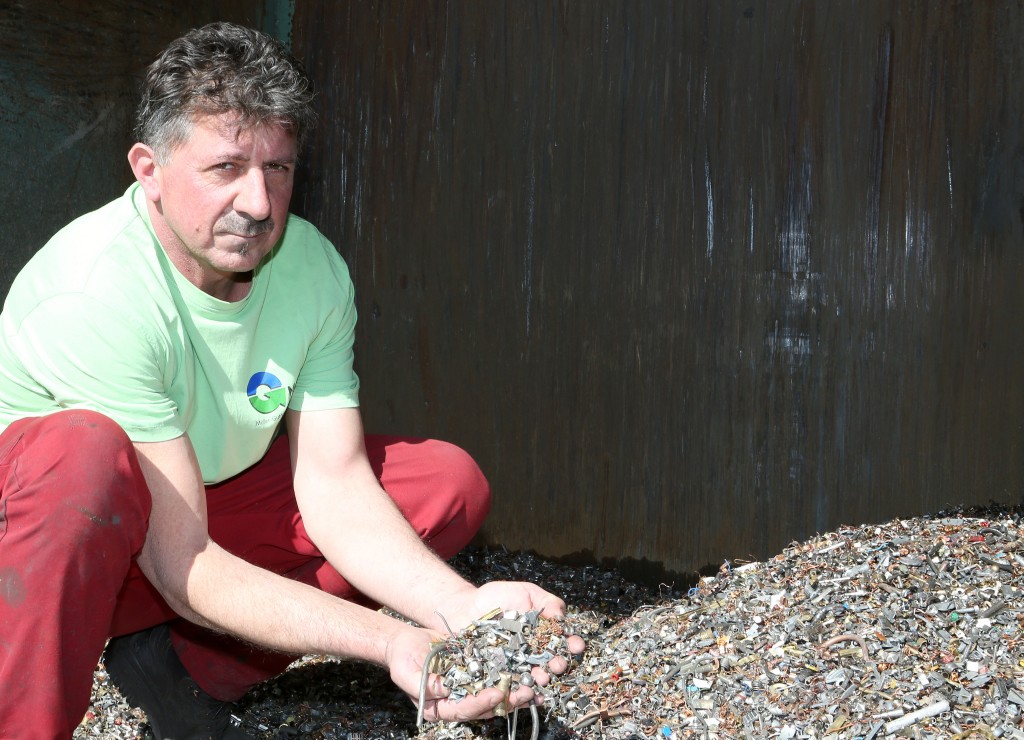In each Müller-Guttenbrunn Newsletter, we will ask an employee of the group in front of a microphone and introduce him and his role in the group.
Editor: How long have you been with Metran?
 FRANZ BUCHBERGER: I am working at Müller-Guttenbrunn since 1989; this is 26 years. Previously I was working in the construction industry and worked on the construction and the mounting of block houses.
FRANZ BUCHBERGER: I am working at Müller-Guttenbrunn since 1989; this is 26 years. Previously I was working in the construction industry and worked on the construction and the mounting of block houses.
Editor: Why did you then applied at the company Metran?
FRANZ BUCHBERGER: I just did not want to work away from home. So I’ve been looking for a job near my home town of Amstetten. A former colleague had advised me to look at Metran and I was taken right away.
Editor: What was your first task?
FRANZ BUCHBERGER: In the first half in the company I was allowed to collect experience and knowledge about the various materials as material sorter. This was followed by about for two years in the department where cans are separatedfrom other packaging material. Only then I went to the Heavy Media Separation („sink-float“), which in these days was our first plant and where all the shredder residue materials from the Metal Recycling Mü-Gu facility was separated.
Editor: What are your activities at the HMS (Heavy Media Separation) unit?
FRANZ BUCHBERGER: I’m a machine operator and my job is that the installation is running correctly and that the settings of the machines such as the density are correct. In the first stage of the separation process rubber and plastics are cut off and in the second stage aluminum and mixed metals are removed. We can handle up to 40 tons of material per hour.
Editor: How does this sink-float system work?
FRANZ BUCHBERGER: In a pool of water, there is a drum, through which the material is flowing. The secret of the machine is the density of water. We change the density of the water by adding ferrosilicon or magnetite to it. We are thus able to increase the density up to 3 kilograms instead of the normal density of 1, so that light particles can float (swim). Heavy particles such as metals submerse and these are conveyed out of the drum through a gutter. This procedure is performed twice with different densities of water. And at the end there still is an Eddy-Current separator.
Editor: That means that everything with a density less than three kilograms then swims?
FRANZ BUCHBERGER: Yes, even little stones can swim and can then be removed and heavy stones are then removed from the mixed metal.
Editor: And how to proceed in case of a disorder?
FRANZ BUCHBERGER: Since the whole system is computer controlled, the machine shuts off automatically in case of a disorder and an error message is displayed exactly there where the problem is. This allows for a targeted fix of the problem after which the system can put into operation again.
Editor: You were there from the beginning, as the sink-float system was installed?
FRANZ BUCHBERGER: I have been involved all along in the setting up and adjustment of the system. Through personal commitment of the entire team, we were able to continuously develop the HMS installation over the years to achieve the best possible separation result. We have continually expanded, tinkered, added a bypass line here or welded as a rake there. This continuous improvement process resulted in more accurate and efficient separations and above all we have become faster.
Editor: How does the control of the aforementioned density?
FRANZ BUCHBERGER: The water is weighed with a 1-liter vessel and controlled. If the density of water is too low, FeSi or magnetite is added when the density is too high, water is added – fundamentally this is really simple.
Editor: What makes your work so interesting?
FRANZ BUCHBERGER: The separation process itself is simply unique. From a large pile of unusable mixed materials we end up with usable raw materials. This is fascinating.
Editor: Is there anything that you perhaps are not so keen of in your work?
FRANZ BUCHBERGER: No, I am particularly happy with the working hours. We work in a two-shift operation and this means that you can really plan the time and most of all I appreciate the proximity to my home.
Editor: What makes your job so special?
FRANZ BUCHBERGER: It is particularly important for optimal separation results that the system is properly set. This requires quite a bit of flair and experience on how to deal with the FeSi (ferrosilicon) …
Editor: Why does one remain faithful for decades to one company?
FRANZ BUCHBERGER: The working environment and working hours are very good and my job simply is very interesting and varied.
Editor: What do you think are the current challenges for your industry?
FRANZ BUCHBERGER: From the perspective of the business that enough materials are available. And for my job, that we can utilize the maximum of the HMS plant.
Editor: How do you think will the industry evolve in the future?
FRANZ BUCHBERGER: Since metals are essential raw materials, there will certainly always be a need for them.
Editor: To conclude, please tell us something about yourself.
FRANZ BUCHBERGER: I have been married for 20 years. I like to ride with the motorbike and bicycle. And I also enjoy Nordic-Walking. At heart and soul I am an Amstettner.






